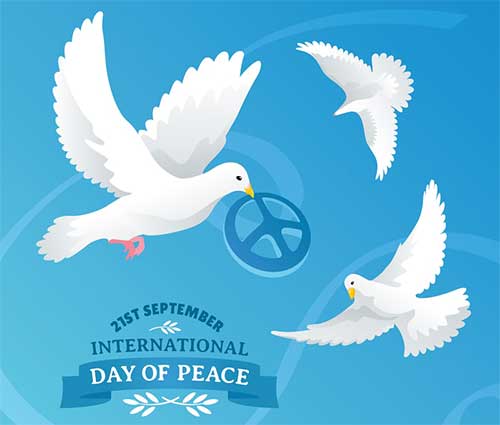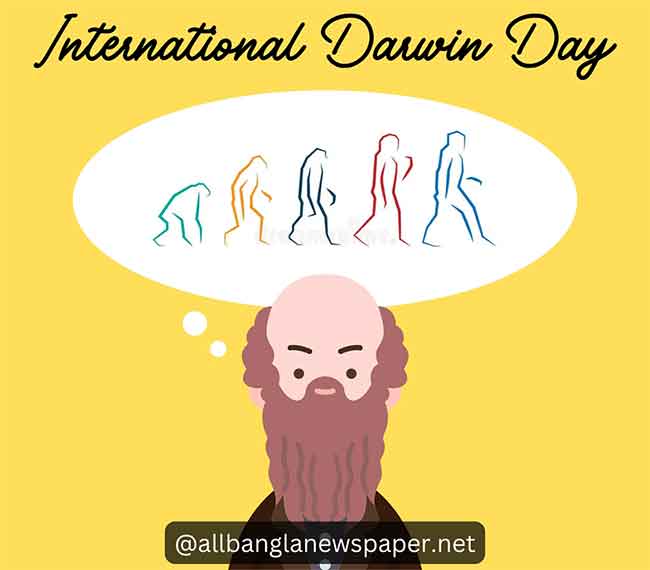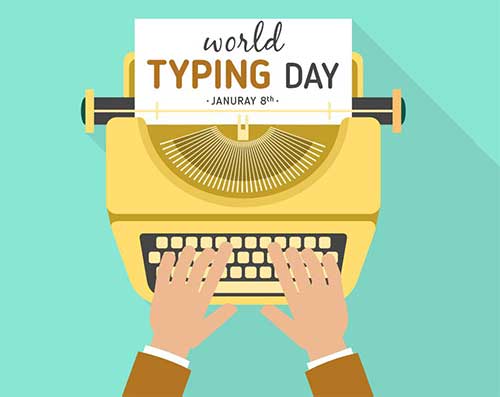
International Day of Peace is observed annually on September 21. It is a day dedicated to strengthening the ideals of peace among all nations and peoples. Established by the United Nations (UN) in 1981, the day serves as a reminder of the importance of non-violence, cooperation, and unity in resolving conflicts and fostering a more just and equitable world. Every year, the UN encourages individuals, communities, and governments to take meaningful steps toward building and sustaining peace.
History and Significance of the International Day of Peace
The International Day of Peace was first celebrated in 1982, following a unanimous resolution passed by the United Nations General Assembly. Initially, the day was intended to coincide with the opening session of the UN. Still, in 2001, the Assembly passed another resolution that fixed September 21 as the permanent date for this global observance.
This day symbolizes humanity's collective desire for a world without war and conflict. The goal is to promote peaceful coexistence, mutual respect, and understanding. It allows nations and individuals to pause, reflect, and take action to pursue peace.
Each year, the UN selects a theme for the International Day of Peace, highlighting specific aspects of peacebuilding. Recent themes have included "Shaping Peace Together," "End Racism, Build Peace," and "Climate Action for Peace." These themes emphasize the interconnectedness of global challenges, urging the world to work together to solve them in ways that foster long-term harmony.
The Importance of Peace in Today’s World
The significance of peace cannot be overstated. In a world often marred by war, violence, social inequality, and injustice, peace is the foundation upon which societies can thrive. Peace enables economic development, protects human rights, and promotes social inclusion. Conversely, conflict and instability can lead to poverty, displacement, and a breakdown of communities.
Global conflicts—whether large-scale wars, regional disputes, or civil unrest—impact millions of lives each year. These conflicts destroy infrastructure, create refugees, and hinder access to necessities like food, water, and healthcare. The International Day of Peace is a crucial reminder of the importance of finding non-violent solutions to such challenges. It calls on governments to prioritize diplomacy and conflict resolution and encourages individuals to embrace peace daily.
The Role of the United Nations in Promoting Peace
The United Nations has long played a pivotal role in advocating for global peace. Through peacekeeping missions, mediation efforts, and humanitarian aid, the UN works to prevent and resolve conflicts around the world. The Security Council is tasked with maintaining international peace and security, while the UN Peacekeeping Forces are deployed to conflict zones to help maintain ceasefires and provide stability during transitions to peace.
In addition to its direct interventions, the UN promotes peace through initiatives focused on disarmament, human rights, and sustainable development. The 2030 Agenda for Sustainable Development, which includes 17 Sustainable Development Goals (SDGs), highlights the importance of peaceful societies in achieving global prosperity. Goal 16 of the SDGs specifically addresses the need to promote calm and inclusive societies, provide access to justice, and build accountable institutions.
Ways to Observe International Day of Peace
Individuals and communities can observe the International Day of Peace in numerous ways, contributing to the global movement toward a more peaceful world. Here are a few meaningful actions that can be taken:
Minute of Silence: At noon, people worldwide observe a minute of silence to honor victims of war and violence and reflect on the importance of peace.
Education and Awareness: Schools, universities, and organizations often hold events to raise awareness about the significance of peace. This can include lectures, discussions, or creative projects focused on conflict resolution, human rights, or the impacts of war.
Community Service: Volunteering in your community is a practical way to promote peace. Acts of kindness, whether through charity work, helping neighbors, or supporting local peace initiatives, foster a sense of togetherness and empathy.
Peace Marches and Vigils: Across the globe, peace marches, vigils, and other demonstrations are held to promote peace and solidarity. These events allow communities to unite and advocate for non-violence and reconciliation.
Social Media Campaigns: In the digital age, social media has become a powerful tool for promoting peace. By sharing messages of peace, hope, and understanding on platforms like Twitter, Facebook, or Instagram, individuals can spread the message of peace to a global audience our hashtags like #InternationalDayofPeace and #PeaceDay.
Support Global Peace Organizations: Many organizations work year-round to promote peace, including the International Peace Institute, Peace One Day, and Amnesty International. Donating to or volunteering with these organizations helps support ongoing efforts to resolve conflicts and promote human rights.
The Link Between Peace and Sustainable Development
Peace and sustainable development are closely linked. Without peace, countries cannot achieve long-term growth, and without development, peace is difficult to sustain. The UN’s 2030 Agenda emphasizes the importance of reducing inequalities, eradicating poverty, and protecting the environment to foster a more peaceful world.
For example, climate change and environmental degradation can contribute to conflict by exacerbating resource shortages, displacement, and competition for land. By addressing climate issues through sustainable practices, countries can reduce tensions and create conditions for lasting peace.
Similarly, social inequality and injustice are major barriers to peace. In countries where marginalized groups are denied rights and opportunities, tensions often lead to unrest or conflict. Promoting social justice, equality, and human rights helps build societies where everyone has the opportunity to thrive, which is essential for sustainable peace.
The Role of Youth in Peacebuilding
Young people have a critical role to play in shaping a peaceful future. As the leaders of tomorrow, youth are often at the forefront of movements advocating for social justice, climate action, and equality. Through initiatives such as the Youth, Peace, and Security Agenda, the UN recognizes the potential of young people to act as agents of peace.
Youth-led organizations, activism, and participation in peacebuilding processes can lead to innovative solutions to global challenges. By empowering young people through education, resources, and platforms for advocacy, we can harness their energy and creativity to build a more peaceful and just world.
Looking Toward a Future of Global Peace
The International Day of Peace is not just a symbolic gesture; it’s a powerful reminder of the collective work needed to achieve a world free of conflict, violence, and inequality. As individuals, communities, and nations, we must commit to fostering peace in our daily lives, advocating for non-violent solutions, and supporting those affected by conflict.
Building a more peaceful world requires more than one day of reflection—it demands continuous efforts from every corner of the globe. As we observe the International Day of Peace, let us all be reminded of our shared responsibility to promote unity, tolerance, and understanding, ensuring that peace is not just an aspiration, but a reality for all.



